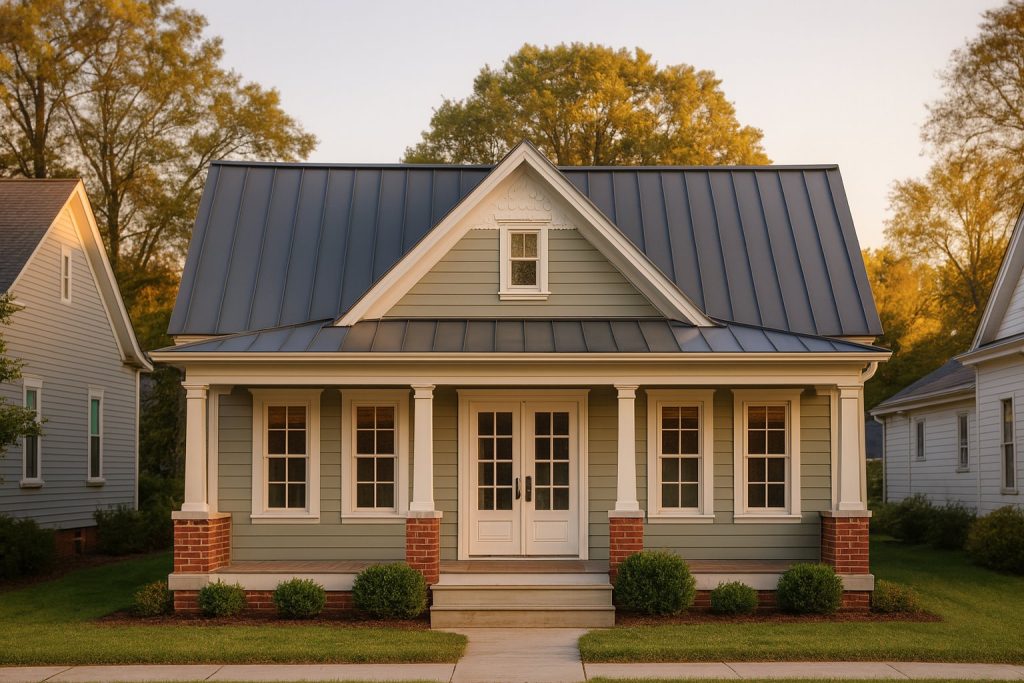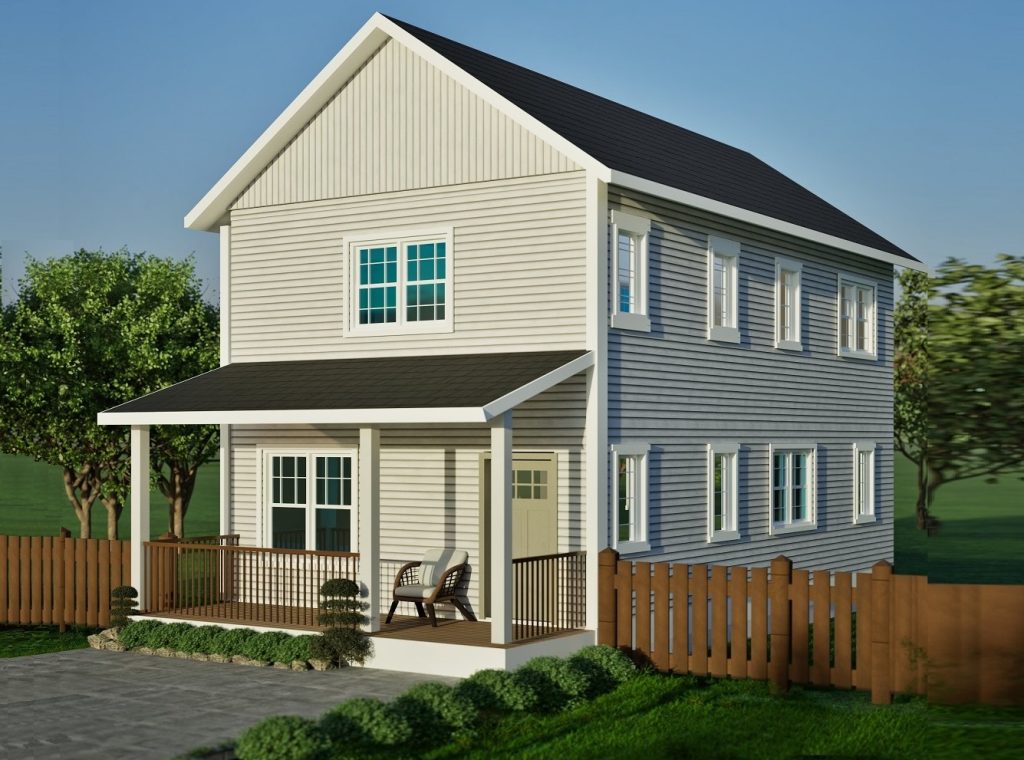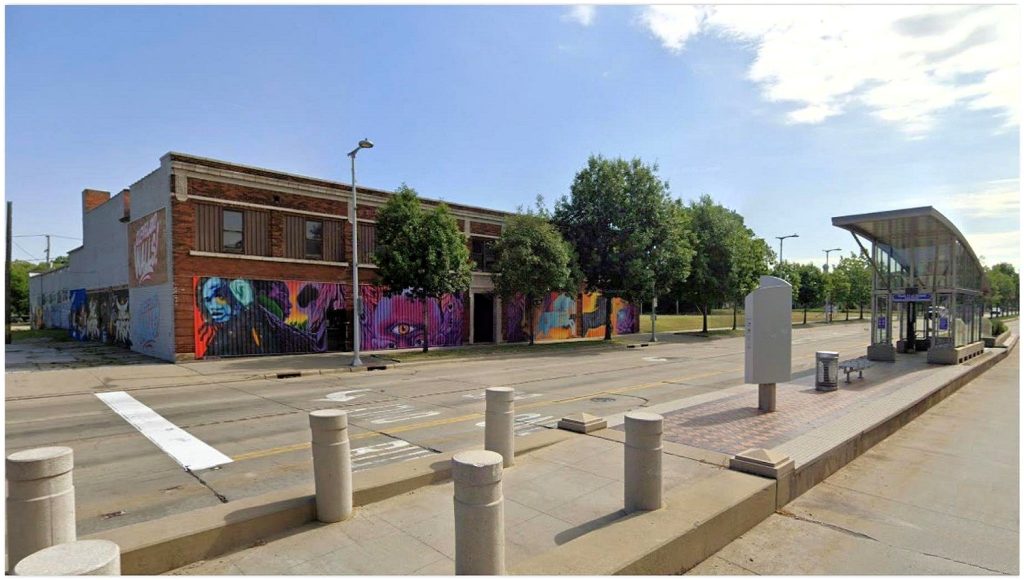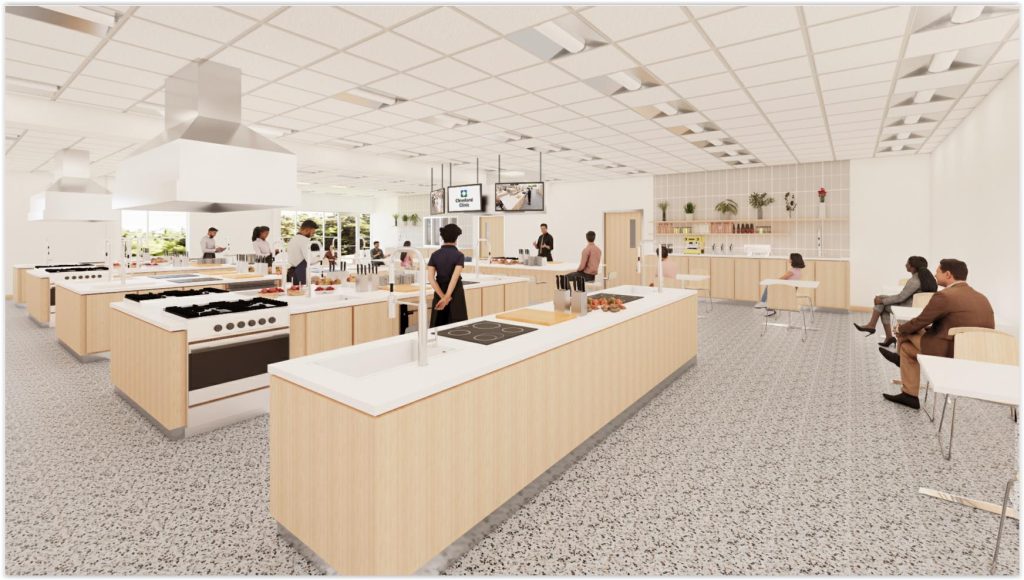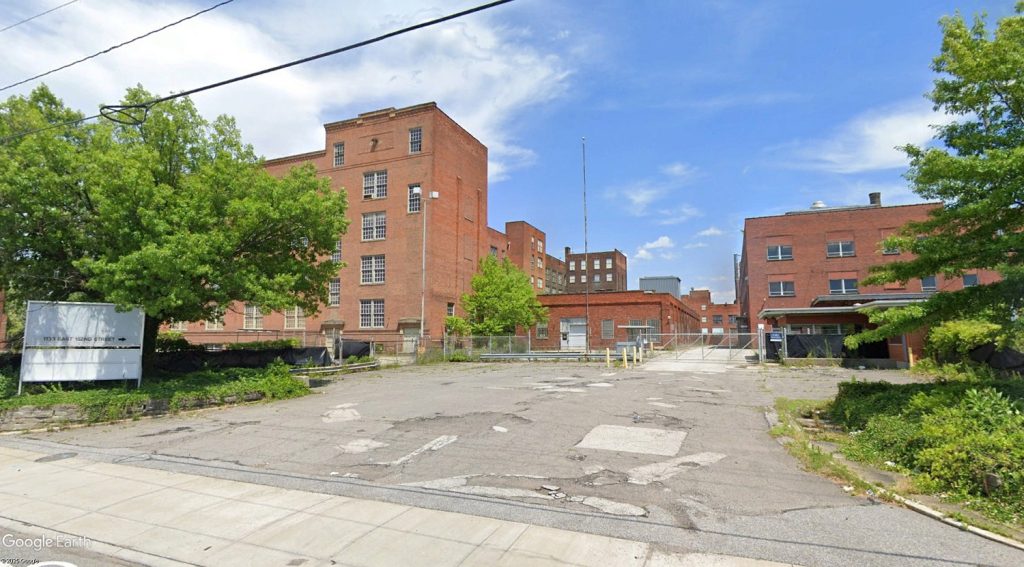
Eleven years after it closed and less than a year before it was demolished, General Electric’s Pitney Glass Works on East 152nd Street in Cleveland stood silent in July 2022 as a powerful reminder of America’s industrial prowess. Now cleared, the site was named as the city’s preferred location for the construction of a modular home factory (Google). CLICK IMAGES TO ENLARGE THEM.
Home manufacturer finalists announced by city
A 22-acre site at 1133-1175 East 152nd Street in Cleveland’s Collinwood neighborhood was selected by city officials as the future home of a new factory for manufacturing affordable, modular homes. Now, the city has to decide which of four candidate companies it will offer the site to build its factory.
The property was acquired on May 30 by the non-profit Site Readiness Fund for Good Jobs from General Electric for $400,000, according to Cuyahoga County property records. Starting in 2023, GE remediated and demolished the former light bulb factory called the Pitney Glass Works.
The factory had 13 buildings totaling 800,000 square feet on a site bounded by East 152nd, Noble and Ivanhoe roads that extended over the Norfolk Southern railroad tracks into East Cleveland. It opened in 1919, employed thousands at its peak, and closed in 2011 as GE moved its manufacturing to China and its cheap labor.
Now cleared, the site is ready for its next function. Construction on a modular housing factory is expected to begin in 2027. The facility is expected to create new local manufacturing jobs and serve as a long-term hub for innovation in off-site housing construction.
“General Electric was an anchor in this community for generations, and it’s fitting that this site will now help anchor the next generation of economic growth in Cleveland,” said Brad Whitehead, managing director of the Site Readiness Fund for Good Jobs, in a written statement.
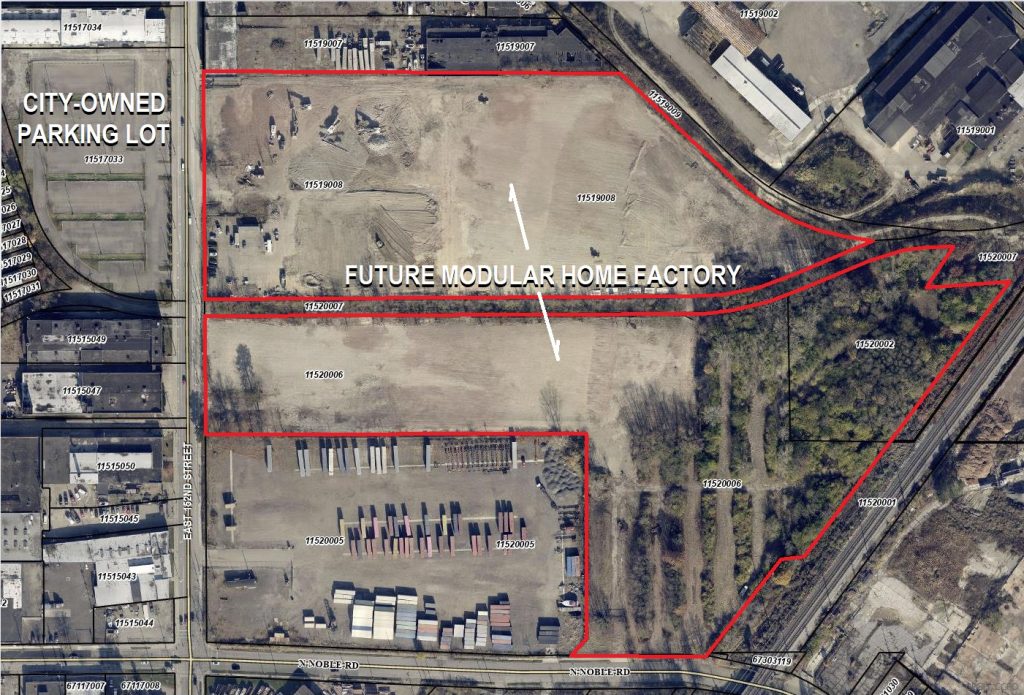
The 22-acre former Pitney Glass Works also spurred affiliated industries nearby to supply or enhanced the light bulbs made by General Electric. In the absence, the neighborhood is suffering. So the goal is to attract new employers to the area, including a modular home factory (myplace.cuyahogacounty.gov).
“This factory will not only deliver high-quality, affordable housing at scale — it will create high-quality jobs, strengthen local supply chains, and breathe new life into a cornerstone of the Collinwood neighborhood,” Whitehead said. The Cuyahoga Land Bank is the Site Readiness Fund’s fiscal agent.
From among four finalists in a request for proposals process, a manufacturer or group of manufacturers will be selected by the city toward the end of 2025. A “market pilot” for the winning candidate will launch in early 2026, delivering 20 off-site-construction homes to the St. Clair-Superior and Hough neighborhoods to gauge market interest and performance.
The modular homes factory could soon be very busy, Mayor Justin Bibb and his administration plan a $100 million tax increment financing (TIF) district for East Side housing, including rebuilt streets, sewers and sidewalks. A similar TIF was created to spur downtown development from the lake to the river — the so-called Shore-to-Core-to-Shore TIF.
Bibb said the East Side TIF would encourage private investment in “neighborhoods that have been forgotten” by the private sector. However, details about the proposed East Side TIF have yet to be developed, let alone publicized. But private home builders are likely to benefit.
Following a competitive review process, the city has narrowed the field to the following construction manufacturers as finalists: Module, ModDSys/Container Homes USA (CHUSA) ZenniHome, and Guardian Structural Technologies.
Module, ModDSys/CHUSA, and ZenniHome are modular manufacturers who produce modules (3D) that are 90- to 95-percent completed in the factory and assembled on site. Guardian produces panels (2D) for framing a house and roof more rapidly and with greater home energy efficiency than traditional stick-built construction.
Each manufacturer is currently participating in a “product pilot” phase, during which their designs, construction processes, and business models will be evaluated, city officials said.
As part of this product pilot, six homes, at least one from each manufacturer, will be developed in the Clark-Fulton and Buckeye neighborhoods in partnership with Habitat for Humanity.
The homes are targeted for completion in the fall. This product testing will inform final selection of the manufacturer(s) and ensure alignment with neighborhood needs.
“Each of these finalists brings a serious interest in Cleveland, not just as a market, but as a place to invest, build and hire,” said Jeff Epstein, the city’s chief of integrated development.
“In addition to creating housing opportunities, this administration is fully committed to implementing new pathways for innovation, driving economic growth and revitalizing our neighborhoods,” he said.
The city also released early concept renderings showcasing the types of modular and panelized homes under consideration. These preliminary designs include single-family homes that integrate with existing neighborhood character while meeting modern standards.
“These are high-quality homes that reflect the look and feel of Cleveland neighborhoods,” said Ward 13 Councilman Kris Harsh who has championed this project. “This initiative is about building in a way that respects and strengthens our communities. It’s also a real opportunity to expand access to affordable homeownership for Cleveland families.”
As the City prepares for the next phase of execution, philanthropic partners are stepping in to help bring these homes to life. The Cleveland Foundation has awarded the City $250,000 to support this phase of the project, reflecting their ongoing commitment to equitable revitalization of Cleveland neighborhoods.
END

